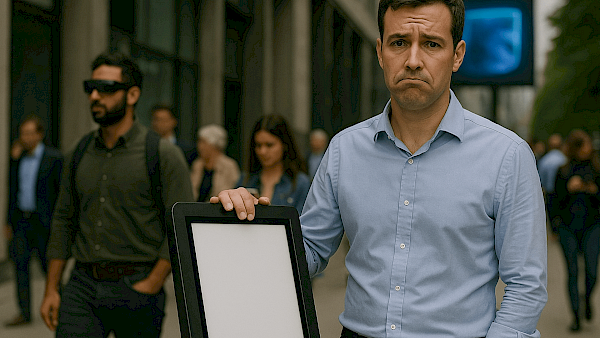Episode transcript The transcript is generated automatically by Podscribe, Sonix, Otter and other electronic transcription services.
Hello, everyone. Here is Ricardo Vargas, and this is the 5 Minutes Podcast. Today I want to talk about a situation you may have experienced. The project was delivered successfully, but by the time it was done, it no longer made sense. The scope was completed, the schedule was completely followed, and on time, the budget was under control. Everything went according to the plan, but something changed out there. Change it in the market, in the technology, new regulations, or even the customer behavior that generates the existence of that project. And suddenly that well-executed project no longer has real value for the organization. And this is a silent risk because we focus so much on execution that we sometimes forget to check if the objective is still valid. In a classic example was what happened in many in-person events in March 2020, when the pandemic flipped everything upside down, or even when companies that launched physical products just as consumers, had already shifted to digital. By the time the project was ready, the audience had moved on. This kind of situation shows that delivering what was planned is not the same as delivering what is needed. That is why it's essential to monitor the external environment during the execution, and not just during initial planning. What we usually do is that we of course, we only start a project if we see the benefit, because if you're starting a project with no benefit, it makes no sense even that the project exists. But what happened? Maybe you started with a clear understanding of the benefits, but six months later, something changed, and you know it makes no sense to continue. Remember when you were inside a hole, stop digging. And it's very important that you do this as early as possible. You can do this with strategic checkpoints through the project-specific moments to reassess if the direction still makes sense. These relevance verification points can help us avoid wasting time, energy, and resources on something that has lost its timing. And if you notice, the word has changed. Bringing that conversation to the sponsoring and key stakeholders is imperative, and you should do that as soon as possible. Often with small adjustments, it's possible, and I'm not saying it will, but it's possible to reconnect the project with today's reality. But that takes courage and agility. It's also important to redefine the success criteria, and this is a fight I'm picking for many years. Maybe it's no longer about scope, but about the usefulness and impact of your project. And of course, document these kinds of lessons so you don't repeat the same mistake because these risks won't show up in your Gantt chart or your WBS. It won't. And remember, true success isn't delivering what was agreed. It's delivering what actually makes a difference in today's world. Think about that. I hope you enjoy this episode. See you next week with another 5 Minutes Podcast.

